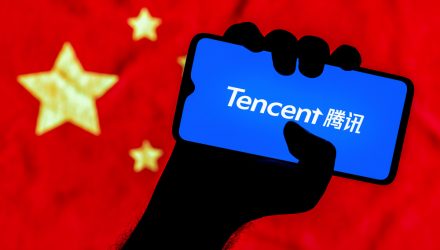Tencent, China’s largest publicly traded company by market capitalization, is looking to diversify beyond China into the European gaming market, reported Financial Times. The move comes at a time when Prosus NV, an early investor in Tencent, continues to reduce its holdings in the company and Tencent is reported to have announced buybacks that should minimize some of the impact.
The Chinese tech giant is looking mainly to acquire or invest in European gaming studios, a move that comes on the heels of an easing of regulations at home within the gaming industry specifically. The concern is that even with friendlier regulations now, Beijing might still look to limit Tencent’s gaming dominance within China. In 2022, 73% of Tencent’s 170 billion renminbi ($24.5 billion USD) gaming revenue was generated domestically.
“Prior to 2020, Tencent’s gaming investments used to be heavily slanted towards Chinese companies. Now it’s getting to the point where the majority of investments are overseas,” Daniel Ahmad, gaming analyst at Niko Partners, told FT.

Image source: Financial Times
Meanwhile, Prosus NV, an early investor in Tencent through parent company Naspers Ltd., has been reducing its stake in the tech giant since June of last year and is utilizing the selloff to fund its own buybacks. Prosus began selling shares incrementally in June 2022 when it owned 29% of shares, and now has holdings of 25.99% after this most recent sale, reported Bloomberg.
“Overnight, we had news that Tencent has stepped up its buyback, which minimizes but doesn’t eliminate the impact of Prosus selling,” wrote Brendan Ahern, CIO of KraneShares, in the China Last Night blog.
Tencent was up 2.90% in trading in Hong Kong overnight.
Investing in Tencent and the Growth Engines of China
The KraneShares CSI China Internet ETF (KWEB) tracks the CSI Overseas China Internet Index and measures the performance of publicly traded companies outside of mainland China that operate within China’s internet and internet-related sectors. Tencent is the top holding of the fund at 11.99% weighting, and the fund contains many of the tech giants that are likely to benefit from and drive economic recovery in China this year.
The fund includes companies that develop and market internet software and services, provide retail or commercial services via the internet, develop and market mobile software, and manufacture entertainment and educational software for home use.
KWEB provides exposure to the Chinese internet equivalents of Google, Facebook, Amazon, eBay, and the like, all companies that benefit from a growing user base within China and a growing middle class. The fund has worked to convert all possible share classes over to Hong Kong shares instead of ADRs to protect investors in case of Chinese delistings within U.S. markets.
The ETF has an annual expense ratio of 0.70% and has $6.4 billion in AUM.
For more news, information, and analysis, visit the China Insights Channel.

